
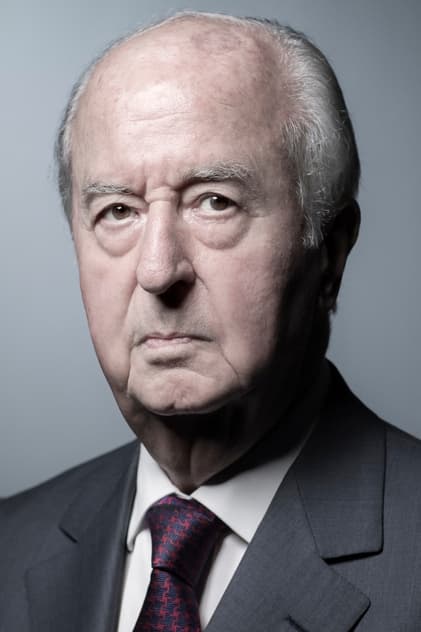
Édouard Balladur
Born: May 2, 1929
in Izmir, Turkey
in Izmir, Turkey
Édouard Balladur (born 2 May 1929) is a French politician who served as Prime Minister of France under François Mitterrand from 29 March 1993 to 17 May 1995. He unsuccessfully ran for president in the 1995 French presidential election, coming in third place.
Balladur was born in Izmir, Turkey, to an ethnic Armenian family with five children and longstanding ties to France. His family emigrated to Marseille in the mid-to-late 1930s.
In 1957, Balladur married Marie-Josèphe Delacour, with whom he had four sons.
Balladur started his political career in 1964 as an advisor to Prime Minister Georges Pompidou. After Pompidou's election as President of France in 1969, Balladur was appointed under-secretary general of the presidency then secretary general from 1973 to Pompidou's death in 1974.
He returned to politics in the 1980s as a supporter of Jacques Chirac. A member of the Neo-Gaullist Rally for the Republic (RPR) party, he was the theoretician behind the "cohabitation government" from 1986 to 1988, explaining that if the right won the legislative election, it could govern with Chirac as prime minister without Socialist Party President François Mitterrand's resignation. As Minister of Economy and Finance, he implemented a liberal economic policy reminiscent of the one attributed to Ronald Reagan and Margaret Thatcher. He thus implemented a major privatisation programme, involving several companies nationalised in 1945 and 1982, such as the Compagnie Financière de Suez, Paribas and the Société Générale. He also privatised TF1. He also reduced the number of civil servants and state expenditure.
Balladur appeared as an unofficial deputy Prime Minister in the cabinet led by Chirac. He took a major part in the adoption of liberal and pro-European policies by Chirac and the RPR. After Chirac's defeat at the 1988 presidential election, part of the RPR held him responsible of the abandonment of Gaullist doctrine, but he kept the confidence of Chirac.
When the RPR/UDF coalition won the 1993 legislative election, Chirac declined to become Prime Minister again in a second "cohabitation" with President Mitterrand, and Balladur became Prime Minister. He was faced with a difficult economic situation, but he did not want to make the political errors of the previous cohabitation government. He continued the economic policy he had undertaken in 1986 by carrying out new privatisations (notably Rhône-Poulenc, Banque Nationale de Paris and Elf). Conveying the image of a quiet conservative, he did not question the wealth tax (reestablished by the Socialists in 1988).
He disagreed with François Mitterrand by considering that nuclear tests were necessary to maintain the credibility of the French deterrent.
Despite corruption affairs affecting some of his ministers, who he forced to resign (thus lending his name to the so-called "Balladur jurisprudence"), he had the support of influential media. ...
Source: Article "Édouard Balladur" from Wikipedia in English, licensed under CC-BY-SA 3.0.
Balladur was born in Izmir, Turkey, to an ethnic Armenian family with five children and longstanding ties to France. His family emigrated to Marseille in the mid-to-late 1930s.
In 1957, Balladur married Marie-Josèphe Delacour, with whom he had four sons.
Balladur started his political career in 1964 as an advisor to Prime Minister Georges Pompidou. After Pompidou's election as President of France in 1969, Balladur was appointed under-secretary general of the presidency then secretary general from 1973 to Pompidou's death in 1974.
He returned to politics in the 1980s as a supporter of Jacques Chirac. A member of the Neo-Gaullist Rally for the Republic (RPR) party, he was the theoretician behind the "cohabitation government" from 1986 to 1988, explaining that if the right won the legislative election, it could govern with Chirac as prime minister without Socialist Party President François Mitterrand's resignation. As Minister of Economy and Finance, he implemented a liberal economic policy reminiscent of the one attributed to Ronald Reagan and Margaret Thatcher. He thus implemented a major privatisation programme, involving several companies nationalised in 1945 and 1982, such as the Compagnie Financière de Suez, Paribas and the Société Générale. He also privatised TF1. He also reduced the number of civil servants and state expenditure.
Balladur appeared as an unofficial deputy Prime Minister in the cabinet led by Chirac. He took a major part in the adoption of liberal and pro-European policies by Chirac and the RPR. After Chirac's defeat at the 1988 presidential election, part of the RPR held him responsible of the abandonment of Gaullist doctrine, but he kept the confidence of Chirac.
When the RPR/UDF coalition won the 1993 legislative election, Chirac declined to become Prime Minister again in a second "cohabitation" with President Mitterrand, and Balladur became Prime Minister. He was faced with a difficult economic situation, but he did not want to make the political errors of the previous cohabitation government. He continued the economic policy he had undertaken in 1986 by carrying out new privatisations (notably Rhône-Poulenc, Banque Nationale de Paris and Elf). Conveying the image of a quiet conservative, he did not question the wealth tax (reestablished by the Socialists in 1988).
He disagreed with François Mitterrand by considering that nuclear tests were necessary to maintain the credibility of the French deterrent.
Despite corruption affairs affecting some of his ministers, who he forced to resign (thus lending his name to the so-called "Balladur jurisprudence"), he had the support of influential media. ...
Source: Article "Édouard Balladur" from Wikipedia in English, licensed under CC-BY-SA 3.0.
Movies for Édouard Balladur...
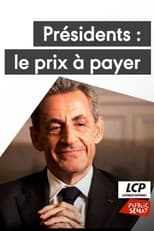
Title: Président : le prix à payer - Face à la rue
Released: April 29, 2023
Type: Movie

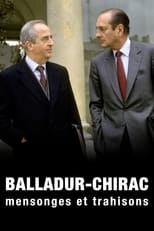
Title: Balladur-Chirac, mensonges et trahisons
Character: Self
Released: March 23, 2017
Type: Movie

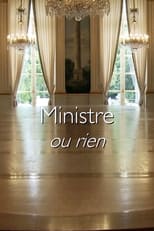
Title: Ministre ou rien
Character: Self
Released: June 25, 2014
Type: Movie
This is the unlikely story of 21 ministers and prime ministers who have crossed or are crossing the french Fifth Republic today. Twenty-one politicians who, from one day to the next, find themselves at the head of a ministry by the grace of a President of the Republic and his Prime Minister. The formation of the government, conflicts of attribution, reshuffles, rumours of appointments, evictions, casting errors: it is all the capricious backstage of the games of power examined here under the angle of confidence and which sheds light on the prestigious but unknown function of minister. An original and instructive political saga on the reality of those who hold or have held this prestigious position.

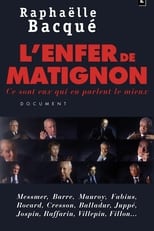
Title: L’enfer de Matignon
Character: Self
Released: October 23, 2008
Type: Movie
In a series of long interviews, 12 prime ministers talk about their experience in the upper echelons of power. The function of prime minister, torn between the president and the parliament, appointed without necessarily being elected but responsible for everything, is at the center of debate. With the exception of Jacques Chirac (1974-1976 and 1986-1988), deliberately left out because of his image as French President, those who governed France for the past 35 years agreed to discuss the exercise of power, as seen through archive footage, but also how they experienced it personally. Filmed in the same studio and sitting in the same chair, 12 French prime ministers talk freely about their time in office, from their appointment until their resignation.

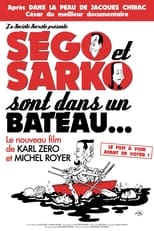
Title: Ségo et Sarko sont dans un bateau...
Character: Self (archive footage)
Released: April 4, 2007
Type: Movie




Title: Zone interdite
Character: Self
Released: March 7, 1993
Type: TV
The zone interdite refers to two distinct territories established in German-occupied France during the Second World War after the signature of the Second Armistice at Compiègne.


Title: Télématin
Character: Self
Released: January 10, 1985
Type: TV
Télématin is a French breakfast television news show, broadcast on France 2 since January 7, 1985. It is broadcast in Metropolitan France weekdays from 6:30 to 9:00 am CET. TV5 broadcast the show in Canada in its entirety until September 2011: it now shows a 90 minute version between 6:30 and 8:00 am Eastern Time, when the French original version is now 2h30 long.
Télématin is hosted by William Leymergie. The show is daily seen by around 40% of the French morning audience, a very high percentage for French TV.
In Metropolitan France, the newscasts are presented at 7:00, 7:30 and 8:00, with newsflashes at 6:30 and 8:50, and two press reviews at 7:20 and 8:30. The 6:30, 7:30 and 8:50 newscasts are usually presented by a female reader and the hourly newscasts by a male. The usual readers are Nathanaël de Rinquesen, Sophie Le Saint, Julien Benedetto, Sophie Gastrain, Patrice Romedenne and Frédéric Vion.


Title: Apostrophes
Character: Self
Released: January 10, 1975
Type: TV
Apostrophes was a live, weekly, literary, prime-time, talk show on French television created and hosted by Bernard Pivot. It ran for fifteen years (724 episodes) from January 10, 1975, to June 22, 1990, and was one of the most watched shows on French television (around 6 million regular viewers). It was broadcast on Friday nights on the channel France 2 (which was called "Antenne 2" from 1975 to 1992). The hourlong show was devoted to books, authors and literature. The format varied between one-on-one interviews with a single author and open discussions between four or five authors.
